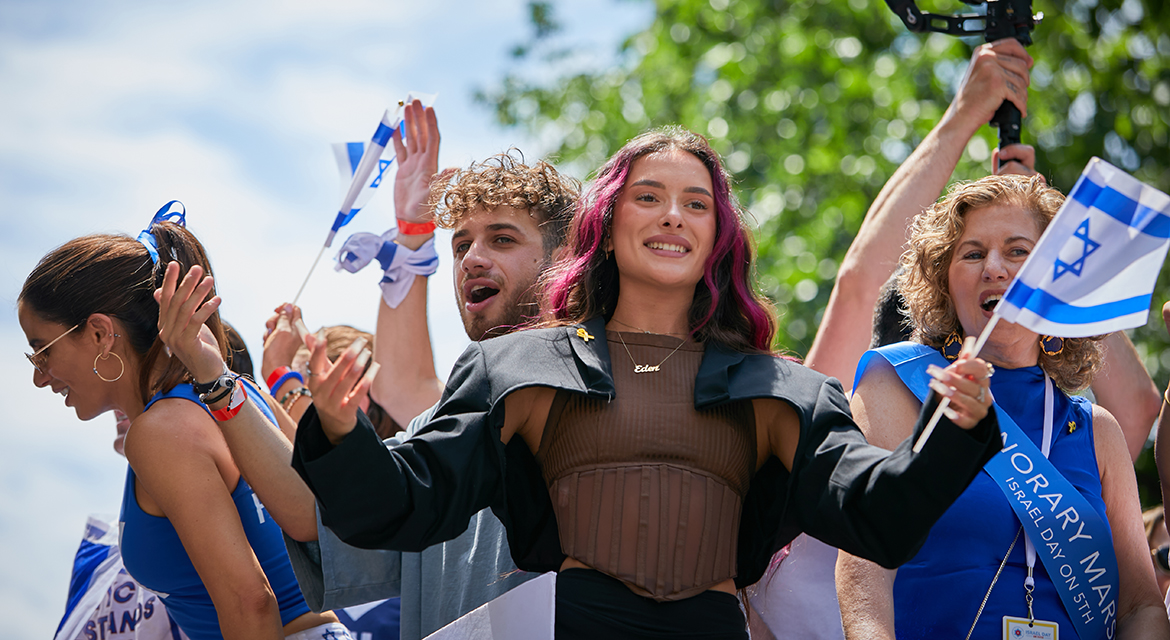This past Sunday’s Israel Day on Fifth exceeded all expectations. Some had speculated that attendance would be down, given the current environment. Amazingly, the complete opposite occurred. More than 100,000 marchers and 25,000 spectators were there — doubling last year’s turnout. As a significant supporter of the parade, which is organized by our partner the Jewish Community Relations Council of New York, we were filled with gratitude.
Beyond the numbers, the parade was, in a word, magnificent. A tonic for troubling times. The normal revelry was toned down, with an unfiltered spotlight on the hostages in Gaza and the devastated communities of southern Israel. At the same time, there was an overwhelming joy in being on Fifth Avenue and expressing our shared love for Israel. Despite the serious divides and complexities on the topic, there was a deep and palpable sense of community.
A feeling of being bound together by an invisible thread.
Even frequent marchers, “seen-it-all” New Yorkers, were moved by this year’s parade and its message of solidarity. But it was the Israelis who participated — including the many we’d flown in to join us — who seemed the most profoundly affected.
I spoke with Rami, a veteran of the Yom Kippur War, a former paratrooper, the prototypical “tough Israeli.” A resident of Kibbutz Be’eri, on October 7 he took up arms, fending off terrorists for more than 12 hours and saving many lives. During that period and after, he witnessed savagery that he’d thought unimaginable in his bucolic community.
Rami shared that he’d initially not wanted to make the trip to New York. He’d been having increasing difficulty coming to grips with the horrors of October 7 and thought that coming wouldn’t help.
But the parade — and the care and concern displayed by the New York Jewish community — provided extraordinary comfort. With tears in his eyes, Rami said that seeing the vibrancy and scale of our community — a community he’d previously known so little about — gave him much-needed strength. This strength, he said, would be crucial for the surviving residents of Be’eri to move forward.
I heard the same sentiment expressed at the parade from so many other Israelis, including one of the country’s most celebrated current heroes — Eden Golan.
Eden, the Israeli entrant in the wildly popular Eurovision song contest, endured brutal antisemitism during the competition. Her song “Hurricane” (originally titled "October Rain”) has become Israel’s post-October 7 anthem.

